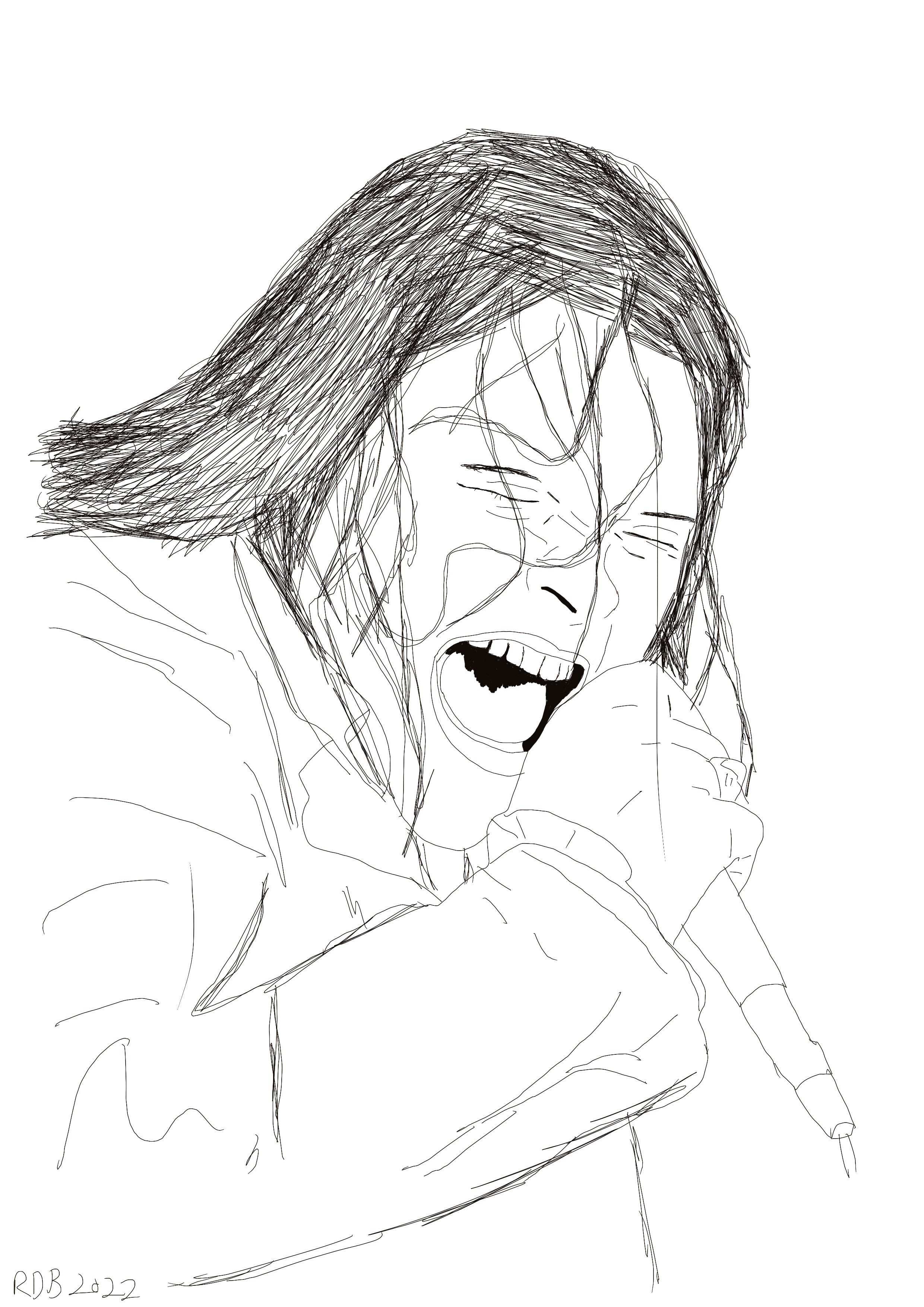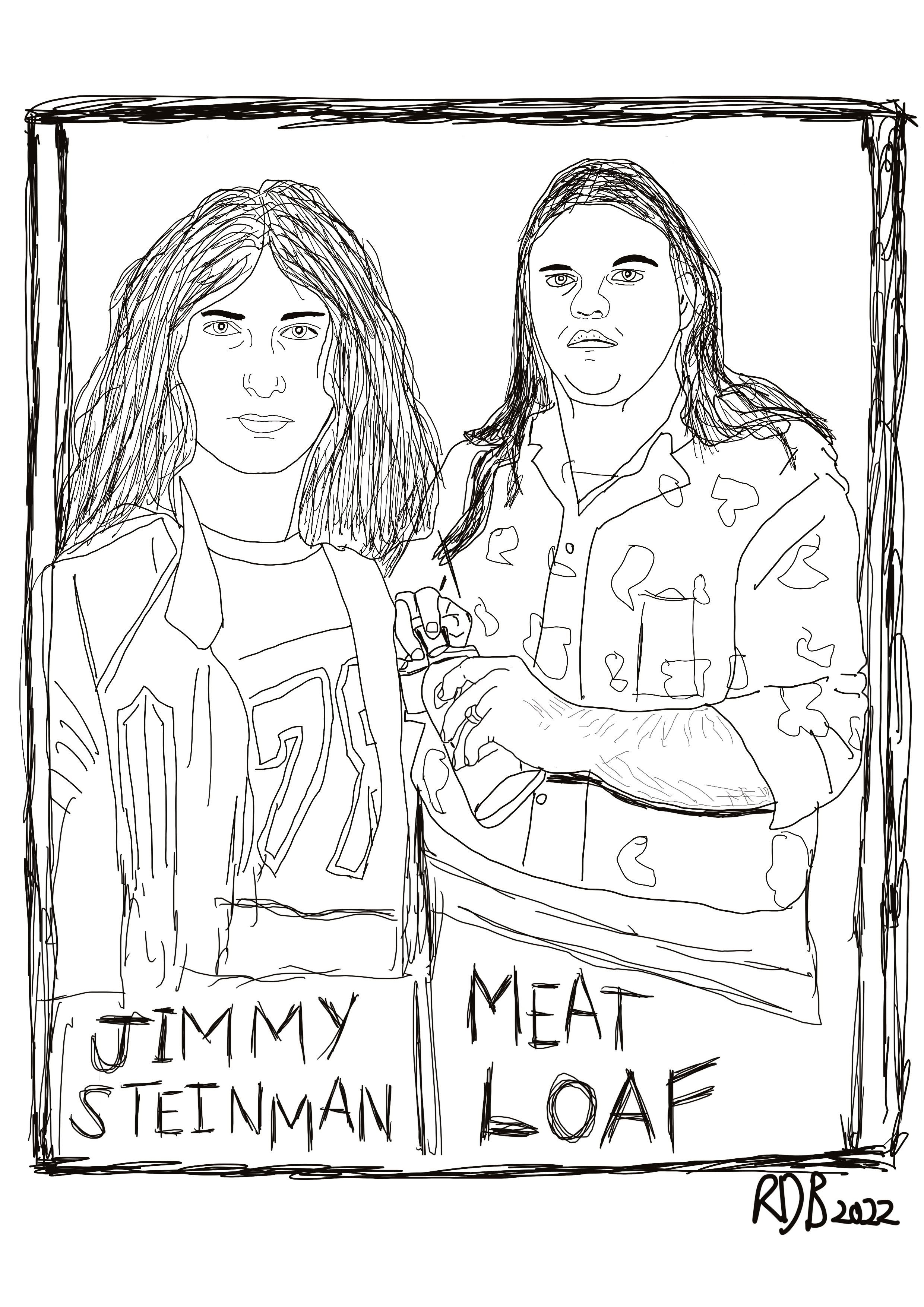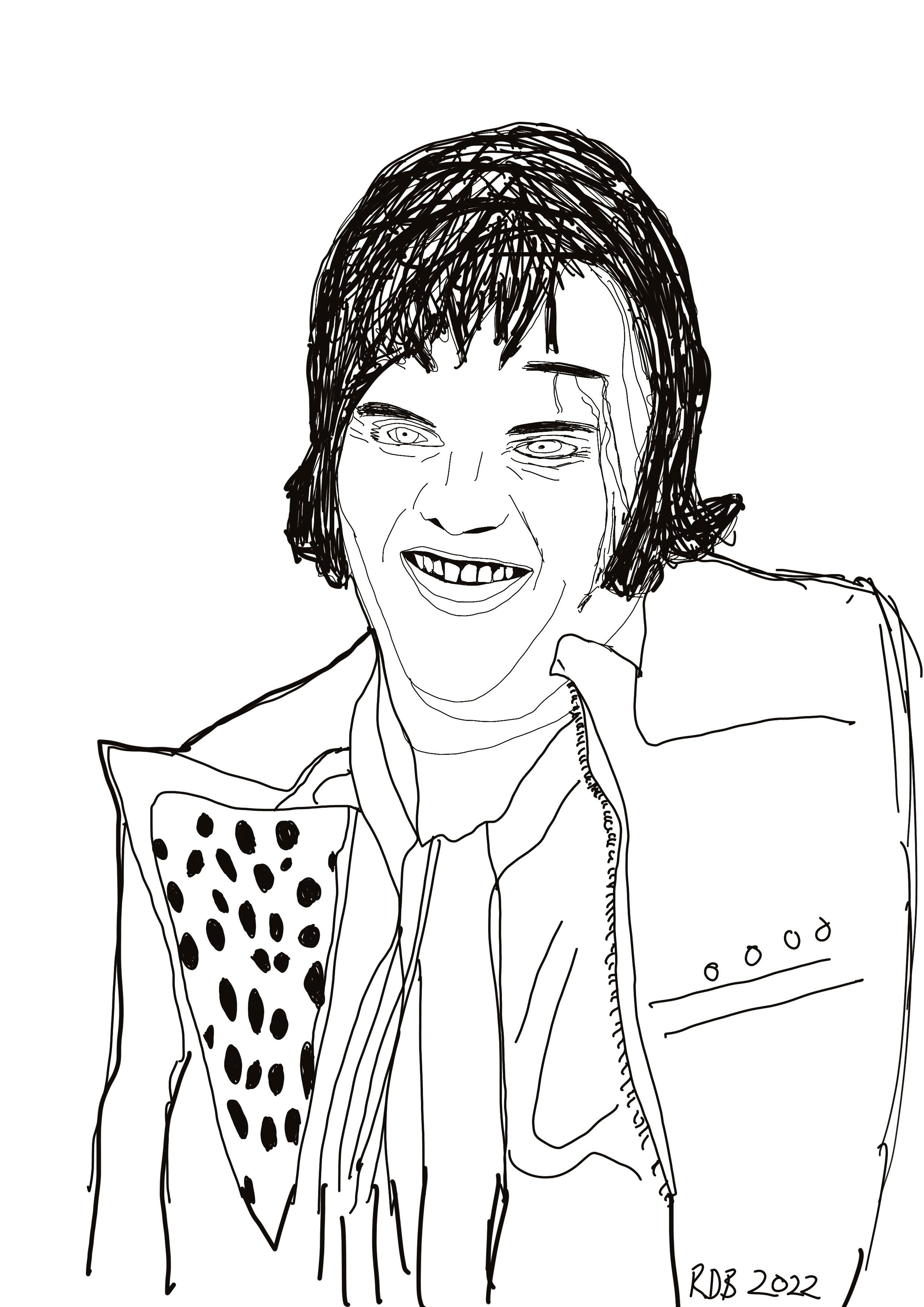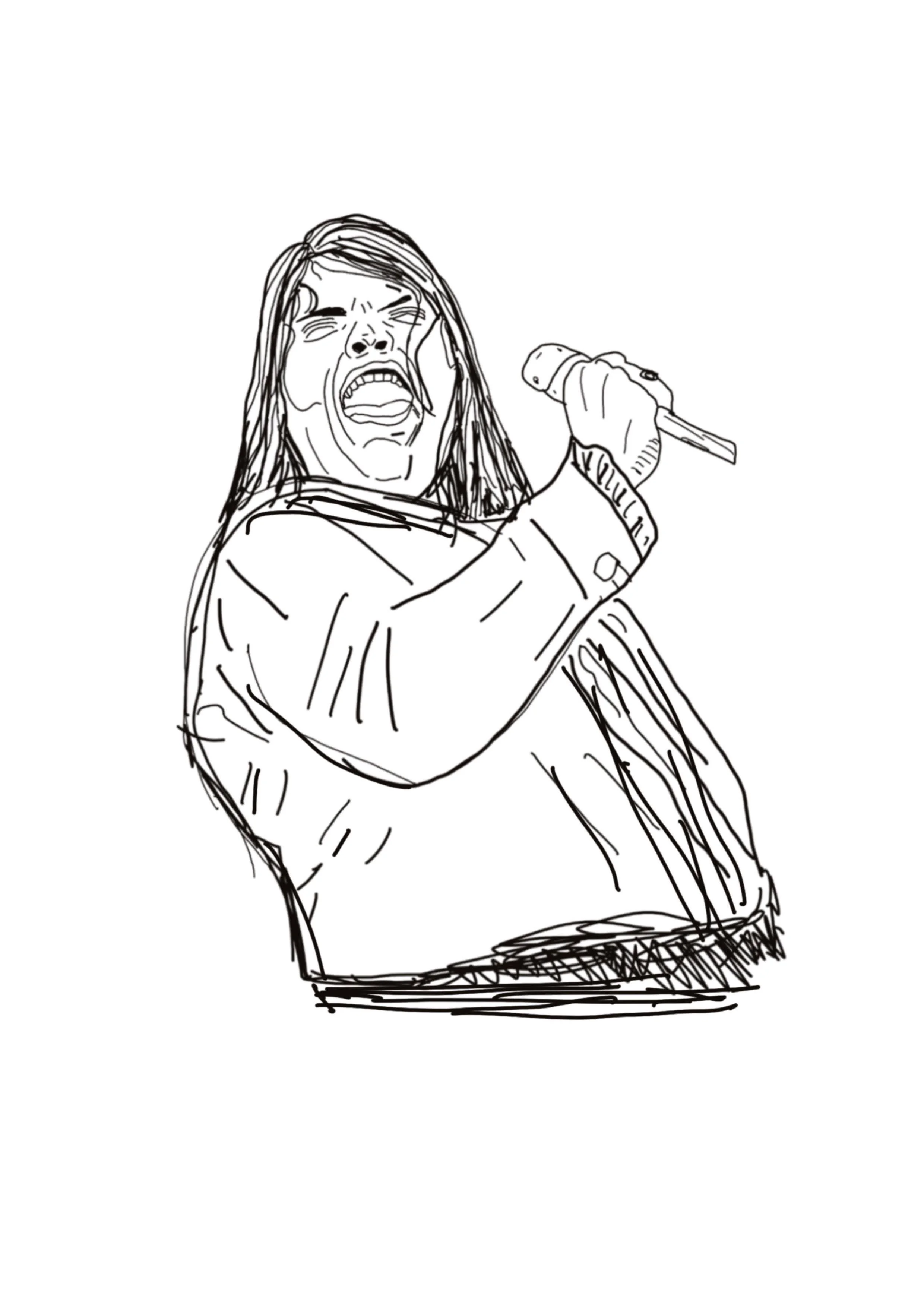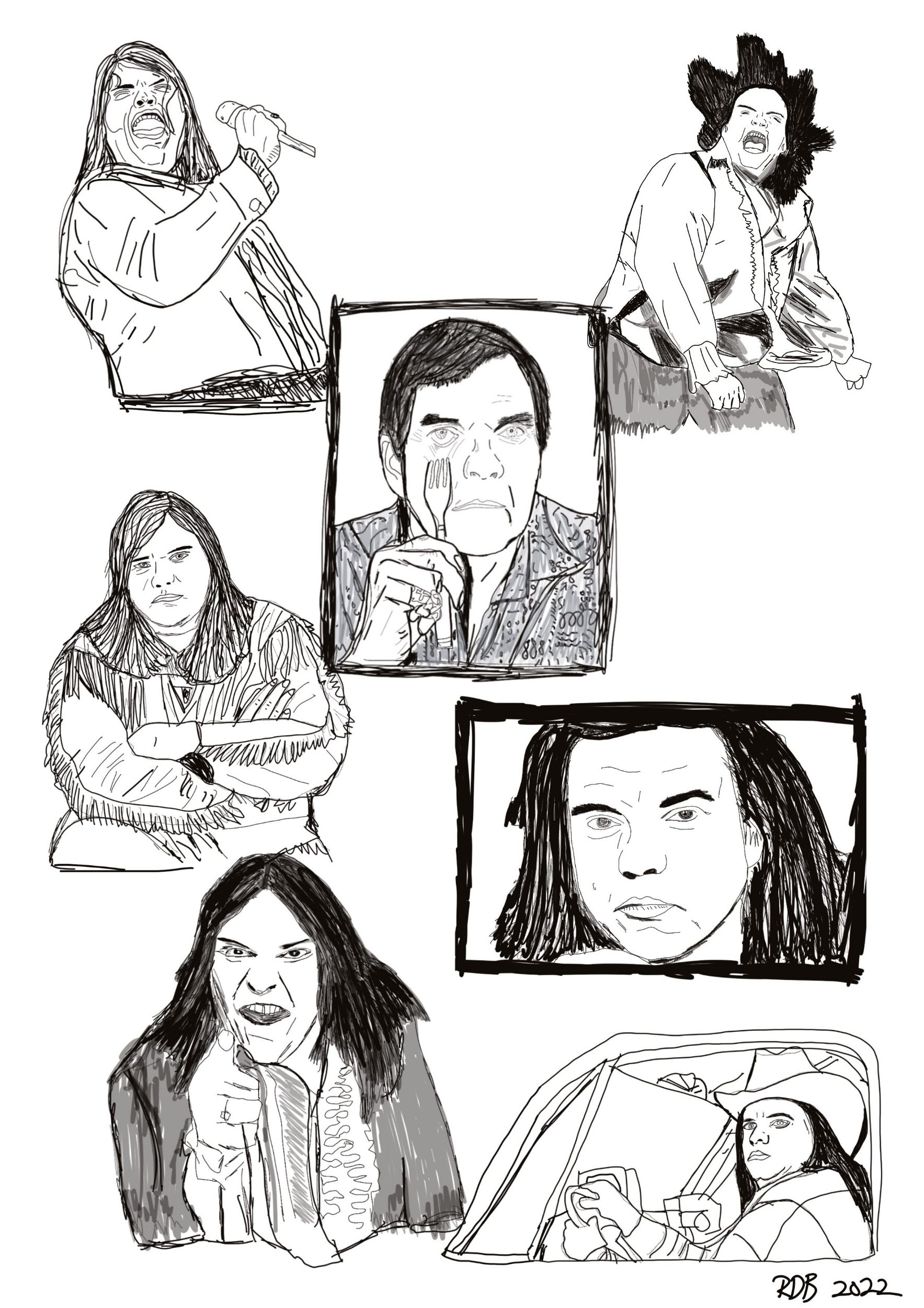Why I frigging love Meat Loaf
Meat Loaf/ Jim Steinmen I'm gonna love her for Both of Us from the album Dead Ringer for love.
Since I heard the news of the death of Meat Loaf on the 20th of January 2022, I felt compelled to go back and listen to his music after realising his performing career spanned an astounding six decades. Now it's months later, I'm still in a Meat Loaf rabbit hole, and I refuse to come out of it.
I've been obsessively listening to all possible interviews, t.v appearances, and performances from the '70s to the '90s. I'm still working my way through ML's collaborative and solo albums, including one of the most popular albums of all time.
I've had his music constantly playing either in the background or on my headphones to the point I hear his songs ringing in my ears during the night as I sleep. I had to stop listening to Meat Loaf before going to bed as he simply wouldn't let me sleep. I'd have his voice echoing through my head all night, revving me up and keeping me rocking all through the night.
I listened to his very first theatre work with Jim Steinman and was blown away by the power of his early voice, which was truly epic. I have found fantastic stripped back versions of his songs that show every syllable of Meat Loaf's emotion and expression.
I have watched all of the interviews I can find on Youtube, from crazy interviews on quirky German t.v in the '80s to interviews on stuffy British t.v talk shows. I even watched his exquisitely cringy but strangely good early movies, Dead Ringer and Roadie. And I have loved it all.
I even found and listened to the very first album he recorded for Motown in 1971, duetting with female vocalist Shaun Murphy. It was such a fun album that showed off the talents of two beautifully talented singers who had been working together singing in the musical Hair. I'm happy to hear the Stoney and Meat Loaf collaboration is set to be re-released later on in 2022 in commemoration of ML.
I have listened to all of the songs he recorded with 1970s American psychedelic guitar rock legend Ted Nugent which were all so blissfully rock it hurts to listen to and makes you wish for the '70s rock to make a comeback. I have to admit I even love his 1980s records. All of his work has his personality written all over it, and if you are a fan, you will always hear it and love it.
I have officially become a Meathead. It's a shame I was so late to the party. It took his death to realise how many things of value he created. I'm afraid this is the same old story for me; this has happened to me before. I became a fan of Roy Orbison as a teenager in the late 80s when he released his last album and passed away from a massive heart attack. I then made my way back through his music, and now I have the big O always firmly in my music-loving heart.
I've been doing the same thing with Meat Loaf; I continue to read endless articles about his life, significant biographies, and autobiography. I have gradually unearthed an artist of exceptional versatility, scope, determination and work ethic.
Perhaps the most valuable lesson Meat Loaf leaves behind for most other creatives is the ability he had to push through his limitations and fears. He was a typical creative filled with self-doubt and anxiety that comes with the gift of creativity. Even though he was terrified, he still would show up, do the work, try to improve himself and make the most of the present. The result is a lifetime of performances that have made Meat Loaf one of the most loved actors, singers, and celebrities.
I was born in 1977 when Meat Loaf and Jim Steinman's collaborative album A bat out of hell came out and became one of the highest-selling albums of all time. So I was blissfully unaware of his early music.
Bat Out of Hell is the most incredible album of seven songs with seven different stories, some five minutes long and others up to ten minutes, which seemed impossibly long for the 1970's popular audience. In a period when any commercial rock or pop song was two and a half to three minutes long and followed the standard hook, verse, chorus, verse, hook formula, it seemed inconceivable that this kind of music would find its audience.
I cannot help but imagine what if Jim and Meat met up today to write and publish their music together. I can see them writing and recording, and if they didn't get picked up by a record company, they would have taken the same route as Justin Bieber, Shawn Mendes or Billie Eilish and now countless others.
The songs would have been loved and discovered just the same by uploading and performing online, together with live performances around the US.
Perhaps we would have more recordings from this early period of the Jim Steinman, Michael Aday (Meat Loaf) collaboration, with less pressure to make a record deal; they would have had more time to write and record. Perhaps Bat One could have been a double record after breaking all streaming records.
Those seven songs today feel like so little. Listening to them on a daily repeat has left me thirsty to hear more from the world created by Steinman and Aday. Their world was based very much on male fantasy, lots of beautiful women, damsels in distress, men with faded levis bursting apart with desire, revving motorbikes and young adolescent boys who are all revved up with nowhere to go.
Steinman's imagination was a weird place, yet it all fitted perfectly into his fascination with the mythology of Peter Pan, a story he had been in love with since childhood.
Meat Loaf's talent as an actor, raccounter, singer and storyteller gave him an ability to connect to his audience. His fans fell in love with him and would happily listen to him sing a shopping list, as long as he put in the same amount of feeling and emotion as he did with his other songs. His performance of Jimmy Steinman’s songs were what made them all so successful.
The two collaborators went through a long and almost hellish road to get their first album published, no one understood their music and the two definitely didn’t fit the image of rockstars.
Any Meat Loaf/ Steinman song is pretty magical; the magic still happens whenever they collaborate. My current favourite (and they change every day according to my mood) has to be from what became Meat's eventual follow up to Bat Out of Hell, Dead Ringer, a diverse and fun album that included a catchy duet with Cher.
The melodrama is still very much at the centre of Dead Ringer, as Steinman's songs are at its heart. From an album version of that first song from their first collaboration, more than you deserve to the top, I'll kill you if you don't come bag and the big-hearted heartbreak of read 'em and weep. Almost nihilistic end of the world desperation of everything is permitted.
But the big melodramatic Bat Out of Hell type of rock opera song has to be I'm gonna love her for Both of Us which is undeniably from the same universe that Steinman created on the first album. The song is a beautiful mix of passion, outrage, shocking details and bizarre combinations of extremes that only could come from the contorted Steinman imagination.
The plot of this song is a kind of warped love triangle. Meat Loaf addresses his best friend, a man he considered to be like his brother. He is shocked at how his friend is treating his girlfriend, stabbing her in the back and treating her terribly. Outraged by how his friend treats the girl, he steps in to defend her. Then the suggestion is that she has asked Meat to help her.
So in comes Meat Loaf, like a knight in shining armour, to rescue the girl from an abusive relationship. The girl who has been singing to him like a siren on the waves has awakened Meat's passion. ML berates his friend's behaviour of putting out the girl's light and locking her inside a deep dark prison. He can't stand it, and he's obliged to take her away from his friend and promises he will have her burning with desire by the night's end. To restore her to her original state, like a jewel in the crown.
I'm gonna love her for Both of Us is pure Steinman gold, his unique blend of romanticism, big broad brushstrokes of melodrama and clever little twists. It's all corny and over the top, but it works.
Yes, Meat is setting himself up as the hero saving a girl who is suffering, but what it boils down to is he is stealing his best friend's girl, no matter how noble his intentions may be.
Steinman had so much mischievous fun with his music; he would take something like a ballad or a love song and turn it around into something unexpected. What does he exactly mean when he says he will love her for the both of us? Is there a menage a trois involved?
Both lyrically and musically, Steinman had a gift of melding together different elements to create his musical form. He would take bits and pieces of his favourite musical influences and combine them to create a new sound. Steinman's music quotes influences from elements as diverse as Wagner, 1950s Country music, Johnny Cash, Boogie Woogie, classic American Rock and Roll like Elvis, Phil Spector, The Beach Boys, and Led Zeppelin, amongst others.
Steinman mixed the most unexpected extreme elements, from chivalry to stealing someone else's girlfriend, conflicting concepts that undermined the story's intention—turning things on their heads and putting a twist or punch line. And he did it all purely for his amusement and caprice. After more than forty years since Bat Out of Hell was released, Steinman is still laughing and winking at us, wondering if we will get the joke.
I’ve put together a playlist over on Spotify of some of my favourite Meat Loaf songs, together with some of those mentioned in this post. Click on to have a little listen.

